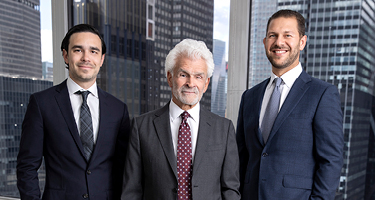Off-road vehicles (ORV) are a popular form of recreation activity in the United States. An ORV is defined as a “motor driven off-road recreation vehicle capable of cross-country travel without benefit of a road or trail, on or immediately over land, snow, ice, marsh, swampland, or other natural terrain.” An all-terrain vehicle, or ATV, is a common type of ORV used for off-roading.
These vehicles are mostly driven for recreation off-road for fun but they also carry significant risks to both drivers and passengers. Every state has their own definition of an ATV and a unique set of rules and regulations. These include how they must be registered, who can ride them, and where they can be ridden.
Many states also have age requirements for operating an ATV. In addition, there may be required training courses and even a required certification. If minors are permitted to ride an ORV, there are likely requirements for adult supervision.
The number of reported ATV accidents in the United States is alarmingly high. There are even a number of fatalities every year. And, children under the age of 16 are most likely to be injured or die in an ATV accident.
An ATV is extremely heavy and often weighs more than 750 pounds. Some can be driven as fast as 75 miles per hour. Despite the weight and potential speeds, these vehicles are not equipped with the same safety features as an automobile. When the operator is reckless or negligent, serious injury and harm often result.
There are several common causes of ORV injury accidents. These include reckless and negligent driving, driving while intoxicated or under the influence of drugs, and just plain careless operation of the vehicle. Some crashes are the direct result of improper training or a complete lack of training, especially when it comes to minors.
In addition, there can be maintenance problems or vehicle defects with the equipment. Many ATVs may lack necessary safety equipment. Also, the failure of the occupants to hear helmets or other personal protection equipment can lead to devastating injuries. Common personal injuries from an ATV accident include traumatic brain injuries, orthopedic injuries, and even death.
When a person is injured in an ATV accident, the option of pursuing a lawsuit may be available to receive fair compensation. Cases can be filed against a negligent driver or owner of the vehicle. And, if the injury is to a minor then a claim can be made against the owner of the vehicle that allowed the minor to ride without proper training and supervision.
Settlement payouts can include payment for pain and suffering, disability, mental anguish, medical bills, and lost wages. The settlements are typically paid by the insurer of the vehicle or by the homeowner’s insurance company for the owner or operator of the ATV. These settlements are often very significant.
In cases involving a deadly ATV accident, family members can pursue a case under the respective state’s wrongful death lawsuit. These cases demand compensation for the loss of the loved one and other allowable damages. Settlements typically get paid to the surviving family members for their losses.
It is wise to contact a personal injury lawyer with experience and expertise in ATV crash cases. These cases have specific nuances and aspects that many lawyers do not understand unless they have handled these cases in the past. Choosing a good lawyer is the reason a case is successful versus lost.
































